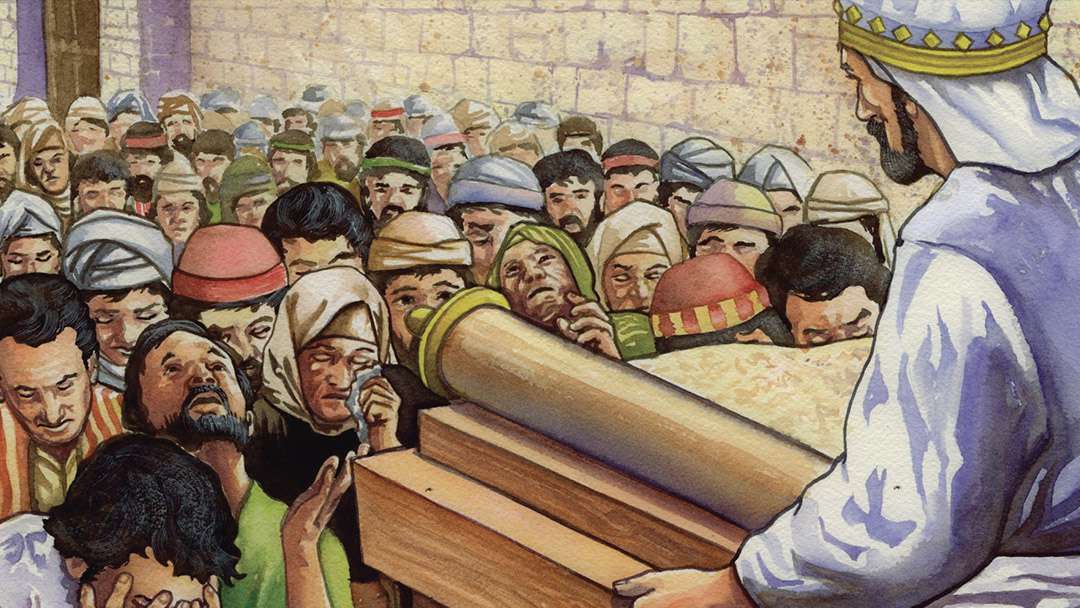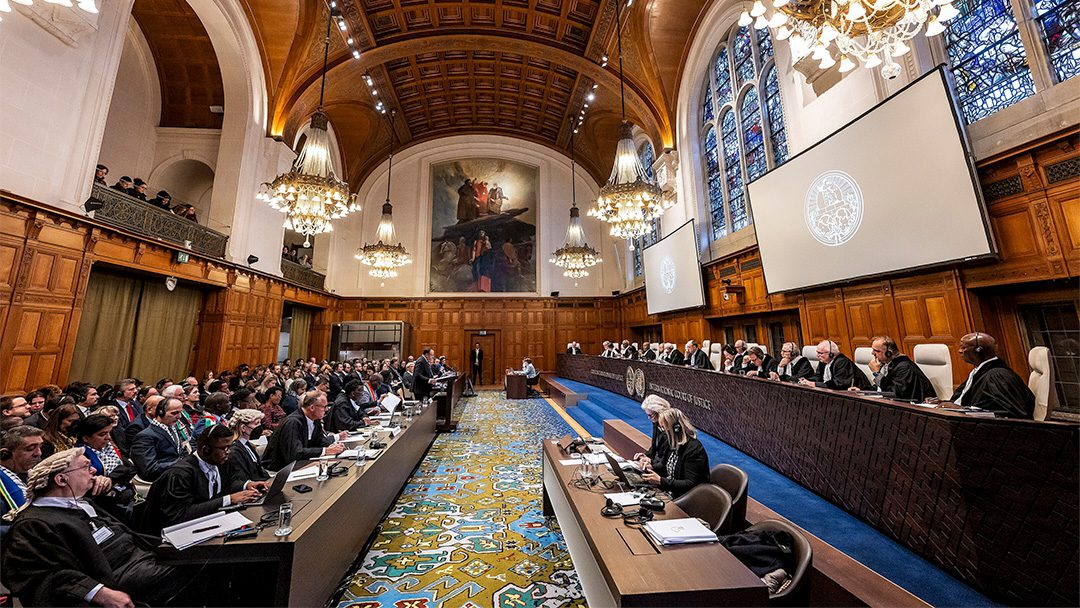We live in what many would call a “postmodern” age. What that means, when all is said and done, is that all truth is regarded as relative. And so, according to this view, there are no longer any absolutes in life. Postmodernists have been described as generally “skeptical of explanations which claim to be valid for all groups, cultures, traditions, or races.” Right and wrong are viewed as subjective values—if it’s right for you, then it’s right, and if it’s wrong for you, it’s wrong. We are told that we should not force our values upon anyone else.
The trouble with all that, of course, is that saying there are no absolutes in life, in other words, no fixed and unchanging values, is itself an absolute. The Bible makes clear reference to such a breakdown in fundamental life values in the very sad closing verse of the book of Judges: “In those days there was no king in Israel; everyone did what was right in his own eyes.”
Few people today would question that in many aspects of our contemporary Western society there is a similar disregard for authority, and people in general are set on doing that which is right in their own eyes. All this is to be linked directly with an increasing loss of a sense of the claim that Almighty God has on the lives of all whom He has created, and a consequent self-focus in life that can in the end only spell moral and social ruin.
That is why the account in Nehemiah of the rediscovery of the teaching in the Book of the Law about the great Jewish feast days is highly significant. God was calling His people back to their spiritual roots. The wall of Jerusalem had been rebuilt, amazingly in just 52 days, despite significant opposition and ridicule. We need in these days to be intentional about rebuilding the wall of God’s unchanging truth both around and within us—His holy Word!
I hardly need to tell you that there are many around who in their postmodernist fervour—or through simple apathy or misguided ignorance and misinterpretation—oppose and ridicule the Word of God! But God has the last word on that: “Surely the people are grass. The grass withers, the flower fades, but the word of our God stands forever” (Isaiah 40:7b-8).
So let us see what happened in Nehemiah’s day—it really does make for fascinating reading. Ezra the priest was reading aloud to the gathered people of God from the Book of the Law of Moses. He was reading from daybreak till noon, “and the ears of all the people were attentive to the Book of the Law” (Nehemiah 8:3).
Amazing—think about it! Hour after hour standing and listening to the Word of God read out and clearly explained to them! We read in Nehemiah 8:9—“And Nehemiah, who was the governor, Ezra the priest and scribe, and the Levites who taught the people said to all the people, ‘This day is holy to the LORD your God; do not mourn nor weep.’ For all the people wept when they heard the words of the Law.” Now let us see what happened when they all opened their ears and their hearts to God’s Word.
Have you allowed the Word of God to be replaced by the word of the TV reporter..? Do you need to rediscover the power and relevance of the Word of God in your life?
“And they found written in the Law, which the LORD had commanded by Moses, that the children of Israel should dwell in booths during the feast of the seventh month, and that they should announce and proclaim in all their cities and in Jerusalem, saying, ‘Go out to the mountain, and bring olive branches, branches of oil trees, myrtle branches, palm branches, and branches of leafy trees, to make booths, as it is written.’”
“Then the people went out and brought them and made themselves booths, each one on the roof of his house, or in their courtyards or the courts of the house of God, and in the open square of the Water Gate and in the open square of the Gate of Ephraim. So the whole assembly of those who had returned from the captivity made booths and sat under the booths; for since the days of Joshua the son of Nun until that day the children of Israel had not done so. And there was very great gladness.”
“Also day by day, from the first day until the last day, he read from the Book of the Law of God. And they kept the feast seven days; and on the eighth day there was a sacred assembly, according to the prescribed manner” (Nehemiah 8:14-18).
Yes, they celebrated the Feast of Tabernacles with great joy. But we should note that at the very centre of their celebration was God’s Word—every day! The Israelites were rediscovering their ancient roots as the people of God. Are there some ancient roots that you need to rediscover and return to?
Have you allowed the Word of God to be replaced by the word of the TV reporter, the word of the press journalist, the word of the most recent popular social media influencer, the word of today’s “politically
correct” social engineer? Do you need to rediscover the power and relevance of the Word of God in your life? Then the recent Feast of Tabernacles may be a timely incentive for you to put things right. Let your Sukkot rejoicing be linked with a renewed and intentional commitment to Scripture reading.
I say that because the final day of this festival season is in many ways its climax, known as the “Simchat Torah”, which means “Rejoicing with the Torah”—in other words, celebrating the joy of God’s Word. On this day everyone completes the yearly cycle of Torah reading with Deuteronomy 34, and then starts again at Genesis 1. It is traditionally an especially joyous time.
It is a day of completion, but also a day of recommencement—a day of new beginnings in God’s Word. Perhaps the challenge comes to some of us today to renew our commitment to regular, planned Bible reading—in effect a return to some ancient roots. Don’t put it off! Like the Israelites in the time of Ezra and Nehemiah, you never know what you will discover…
Jewish people often celebrate Simchat Torah by taking the Torah scrolls out to the street and dancing publicly as a way of showing their pride as Jews. A Christian writer once made an intriguing observation on this practice:
“In Israel, the neighbourhood streets are filled with people as whole congregations pour out of the synagogues carrying their Torah scrolls high in the air as they sing and chant in celebration.”
“Can you imagine the effect on the neighbourhood if your congregation did the same thing with your Bibles raised in the air? People would ask a lot of questions, and you could share with them the joy of serving the Lord God of Israel. Are we ready to put our lives on the line for God? He is inviting us to a celebration. Let’s start today.”












0 Comments